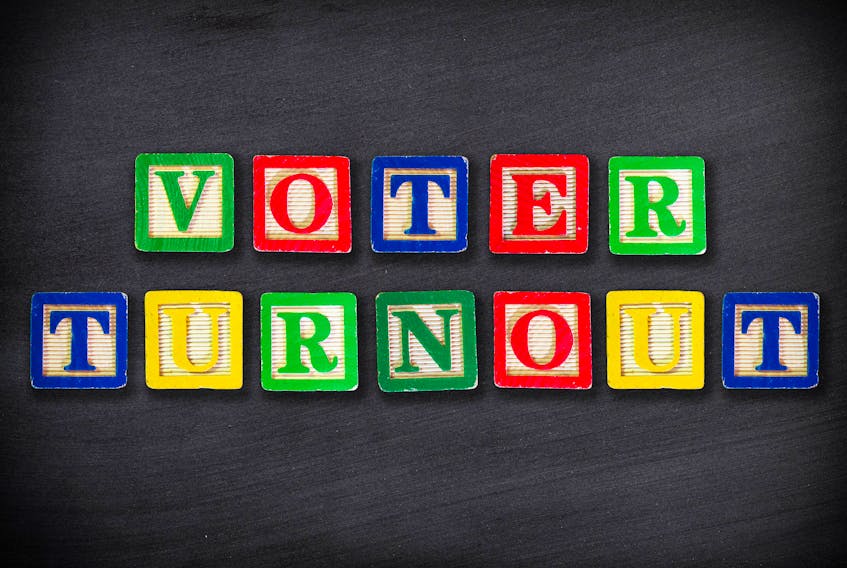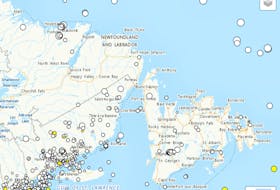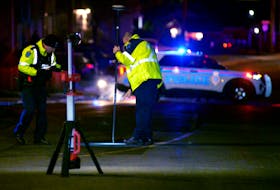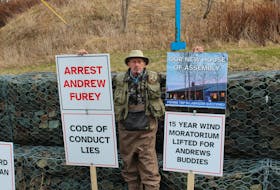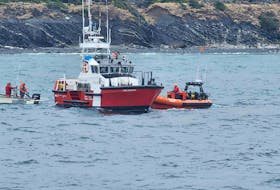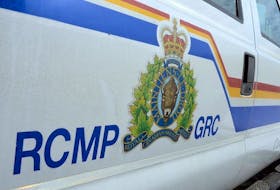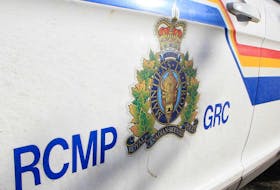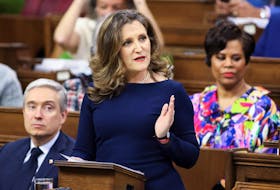ST. JOHN'S, N.L. — Portraying the 2021 provincial election as a definitive victory for the governing Liberals is a stretch, as some in the party are suggesting following Saturday’s preliminary results, says Memorial University political scientist Russell Williams.
Support for the Liberal party was at 65 per cent in a poll just before Christmas, significantly higher than the 48.2 per cent received in the unofficial tally.
“I think when the government called the election, they were expecting a really decisive win and that’s not really what they got yesterday,” Williams told The Telegram Sunday.
The election results will be finalized Tuesday.
Related
- EDITORIAL: For Newfoundland and Labrador, it was an odd job of an election
- Crosbie's future is in question after what was a double loss in Newfoundland and Labrador election
- NL Alliance leader disappointed to see majority win for Newfoundland and Labrador Liberals
- Liberals, Furey win a majority government in Newfoundland and Labrador
- NDP Leader delivers impassioned speech on ‘historic’ Newfoundland and Labrador election
According to numbers released Saturday, the Liberals gained three seats in the House of Assembly to move to 22, while the Progressive Conservatives lost two seats, including that of leader Ches Crosbie, who fell in his district of Windsor Lake. They now hold 13 seats.
The NDP also lost a seat, dropping to two, as leader Alison Coffin was defeated by Liberal John Abbott, by 53 votes, in St. John’s East-Quidi Vidi. Three independents fill the remaining seats.
Williams says the results likely indicate there was “substantial slippage” in the Liberals' popularity over the course of the controversial campaign, drawn out to 10 weeks from the original Feb. 13 election date due to an outbreak involving a COVID-19 variant.
Kelly Blidook, another political scientist at Memorial, was expecting a Liberal majority. The victory wasn’t a big as he anticipated, however.
“I actually thought they would win a few more seats than they did, and I actually still thought there was a reasonable likelihood they would still be in the 50-plus range (for vote percentage),” he said Sunday.

Low turnout
According to the preliminary results, turnout for the election was just 48.2 per cent, translating into 178,632 ballots casts.
“To me, that is the headline story of the election … rather than sort of the partisan outcome,” Williams said.
Looking at the previous 11 provincial elections in Newfoundland and Labrador, where the number of eligible voters is reasonably consistent, there were about 70,000 more votes cast on average than in 2021, he said.
“So, this isn’t just an all-time low sort of in modern electoral history, it’s a substantial low,” Williams said.
"This isn’t just an all-time low sort of in modern electoral history, it’s a substantial low." — Russell Williams
“Turnout is a real story, and not simply because turnout was low, but because turnout being low in the election probably has something to do with the cancellation of in-person voting, and therefore that raises all sorts of questions about the legitimacy of the election and how shoddy the election actually was.”
Blidook, who believed the turnout potentially could have been worse, said the number of people who voted reflects badly on the election.
The turnout is an indicator of the broader story of the election, which is whether or not it was run properly. With turnout at 60 per cent for the 2019 election, there’s no reason to expect the number would be much different this time around, he said.
“That comes back around to, were there certain people who were unable to vote, was the registration process carried out properly and further … allowing only mail-in ballots … did all these things culminate to depress the vote and is that an acceptable level of depression or is it so much that we could say that people’s rights weren’t met,” Blidook said.

Clarity needed
In his victory speech, Liberal leader Andrew Furey called the win a “clear mandate” from residents of the province.
“I think this is a legitimate election,” he said in response to a Telegram question about potential legal challenges.
“Lawsuits will happen if they happen, but we are going to go ahead and govern.”
Blidook called into question some of the actions and statements made by Chief Electoral Officer Bruce Chaulk during the election.
If Furey intends to lead going forward, Blidook says he should be clear on the basis on which he is doing so by stating whether Chaulk did an effective job.
“There’s a lot of people who seem to think that he didn’t,” Blidook said.

“Up to this point, (Furey’s) statements have been, ‘Well, we don’t run the election,' as if there’s no responsibility here.
“Well, there’s a responsibility to interpret the election effectively, and so that means, again, to be perfectly clear with us. Do you think what was done by Bruce Chaulk was all good and you’re comfortable with it or aren’t you?”
Following this election, Williams said it is evident whole sections of the province’s Elections Act have not been followed for years.
“I just think the whole situation is questionable and it would have served the government well to take a more conciliatory approach, admitting that there were problems with the election and that they need to fix this,” he said.
“I certainly think that there needs to be some sort of independent investigation of the conduct of the election. Regardless to what kind of court challenges there are, that needs to occur.”

The future for Crosbie, Coffin
Williams thinks Crosbie's time as leader of the PC Party is probably over.
Coffin’s situation is a little different, he says, and feels she may take a wait-and-see approach.
Given the NDP has tried to work before with a leader outside the House of Assembly, Coffin may try to hang on based on the chance there may be another election before too long, which Williams feels is a very real possibility.
“I certainly think that seat (St. John’s Quidi-Vid) remains winnable for the NDP under normal circumstances, and given the problems with the election, she may decide, ‘I’m going to tough this out and stay on as leader,’” he said.
Blidook had similar thoughts based on the responses of the two leaders on Saturday.
“I think that there’s a possibility that Ches Crosbie does not intend to keep fighting here, so we’ll see,” he said.
Coffin, meanwhile, gave the impression she won’t go down easily, Blidook said.
“She’s not happy with how this election was run,” he said.
Paul Herridge reports on the Burin Peninsula
[email protected]

